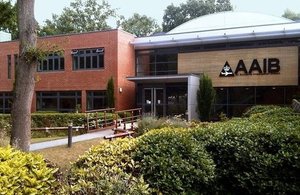From today employers of all sizes in England can now apply for extra funding to help them take on new apprentices, in the latest drive to revolutionise the skills and training offer across the country.
The boost to the apprenticeship incentive scheme was confirmed by the Chancellor in the Budget in March, and will be available to claim from today (1 June). Businesses can apply to claim £3000 for each new apprentice hired as a new employee from 1 April until 30 September.
The cash incentive is designed to help more employers invest in the skilled workforce they need for the future, as part of the government’s Plan for Jobs. It builds on the extensive action already underway to protect, support and create more jobs while bringing our skills and education system closer to the employer market and widening the opportunities that are available, as we build back better from the pandemic.
Chancellor Rishi Sunak said:
Young people have been hit especially hard by the crisis – which is why our Plan for Jobs launched last year is focused on helping them get the skills they need to get the jobs they want.
By boosting the cash incentives for our apprenticeship scheme we’re improving opportunities for young people to stay in and find work – this could not be more important in our economy’s recovery.
Gillian Keegan, Minister for Apprenticeships and Skills said:
Apprenticeships are a fantastic way for employers large and small to grow their businesses and will continue to play a key role in our economic recovery.
This cash boost will help even more employers to invest in their future workforce, creating more high-quality apprenticeship opportunities so businesses have the skilled talent pipeline they need to thrive, not just today but also in the future.
Thousands of businesses across the country have already taken advantage of the original incentive scheme, which was first launched in July last year by the Chancellor.
Employers can choose how to spend the cash, for example, covering uniform or travel costs for the apprentice.
Matt Clay, Group Qualifications Manager at Lookers said:
The current climate has the potential to leave a damaging impact on the future of young people. We’re delighted to have offered 185 Apprenticeship roles across the Group during this time, enabling opportunities for these young people to build their confidence, skills and experience. Our continued investment into apprenticeships is a result of the recognised value they generate for the business; for every £1 invested we realise a return of £20. The current Government support package will build upon the commercial impact of our apprentices, enabling us to secure the financial future of the Program, having moved into the government co-investment model.
Helena Baxter, apprenticeship lead, Walsall Council said:
Apprenticeships are good for business, as apprentices can be moulded and shaped in their area of expertise, to deliver the exact skills your business needs. Apprentices are the future decision makers, managers and leaders of Walsall Council and continuing to bring apprentices into the business, even in such difficult times, is important to protect our future, whilst ensuring we continue to deliver the vital services our communities depend upon. I would urge all employers to continue to recruit, and to benefit from government incentives to ease financial burden, whilst offering exciting and rewarding careers opportunities to apprentices.
Abby Swift joined MTR Elizabeth Line as a Customer Experience apprentice using the incentive payment scheme. She said:
My apprenticeship so far has been a great opportunity to develop my skills and knowledge whilst working within a great team at MTR Elizabeth line. I would encourage other people to consider it as an option.
Apprenticeships are playing a central role in the government’s reforms to post-16 education and training, ensuring more people can gain the skills they need to get the jobs they want in a wide range of exciting sectors everything from digital marketing, engineering and clean energy.
The government is also investing £126 million to help create 40,000 more traineeships in England, for 16-24-year olds in 2021-22.
Traineeships are programmes lasting between 6 weeks and 12 months that offer young people invaluable training and work placements that boost employability, bridge skills gaps and bolster the future talent pipeline of businesses.
Employers can also apply for a £1000 cash boost to help them deliver traineeships for up to 10 learners per region, in each of the 9 regions of England.
Notes to editors:
• The incentive is paid in addition to the funding available to employers for training and assessing apprentices, and the extra payments we already make to support employers and providers meet the needs of the youngest apprentices and those with an Education, Health and Care Plan.
• An exciting talent planning route for businesses could see an apprentice joining an organisation for a Kickstart placement then progressing onto an apprenticeship with them. Employers would have access to the full range of financial support the government provides for apprenticeships in England.
• The previous incentive offered £1500 for an apprentice aged 25 or over, or £2000 for an apprentice aged 16-24, recruited between 1 Aug 2020 and 31 March 2021.

